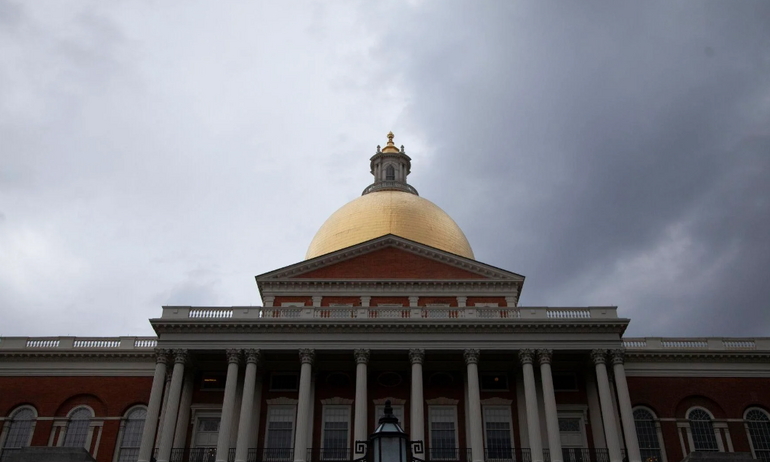Top Democrats needed a few extra months to reach agreements on major laws this session, but wrapped up business for the term with almost a day to spare and New Year’s Eve plans intact.
The House and Senate adjourned their last meetings of the 2023-2024 term early Tuesday morning after beginning them on Monday morning. Dozens of bills were suddenly shipped to Gov. Maura Healey’s desk over the course of sessions that exceeded 14 hours.
Legislative leaders had the option of adjourning Monday and meeting again on Tuesday, the final day allotted for the term, but opted to plow through business Monday night into Tuesday morning and then call it a wrap.
The branches adjourned Tuesday “sine die,” a Latin phrase used by legislative bodies to indicate they have no plans to return. The House adjourned at 1:11 a.m. and the Senate called it quits at 1:25 a.m.
When lawmakers gavel back in on Wednesday at 11 a.m., they will constitute the 194th General Court, a group that will feature three new senators and 19 new state representatives.
Their decision gives lawmakers a buffer of only a few hours ahead of the Wednesday start of the next two-year term, and it leaves them unable to field any amendments Healey might return. With the Legislature dissolved, Healey can either sign the bills they sent to her or let them die by way of the pocket veto.
Healey has largely agreed to the Legislature’s agenda and her choices will trickle out in the coming days. The governor will be on Beacon Hill on Wednesday, when she will swear in legislators for the 2025-2026 cycle.
Bills that flew through the branches Monday ranged from matters affecting single communities to proposals with statewide implications such as a bill to prevent professional license revocation over unpaid student loan debts (H 4937). The measures include two major health care bills that had been hung up in recent months.
Those bills, a hospital oversight reform package (H 5159) crafted in response to the Steward Health Care crisis and a pharmaceutical cost control and access proposal (S 3012), were in peril after Democrat negotiators were unable to find consensus by the traditional July 31 deadline to wrap up major business.
Unlike in prior terms, however, the bills that were not complete by that date did not die. Top Democrats eventually reached agreement and pushed through nine different accords after Aug. 1, some of which received votes during election season — a practice that legislative predecessors sought to avoid with that July 31 cutoff.
House Speaker Ron Mariano and Senate President Karen Spilka have signaled some interest in changing the way they structure their two-year terms, a task influenced by the work they completed this fall and winter.
That debate will arrive quickly: lawmakers are poised to rethink the time allotted for formal business when they craft internal rules packages for the 2025-2026 term in the next few months.
Outside of a few health care-related speeches in the Senate, there was little debate — or even participation of any kind — to mark the final action of the term. Both chambers had only a handful of lawmakers in attendance to steer through the dozens of late-moving bills, and the sessions were marbled with long periods of inactivity while staff worked behind the scenes to dot the i’s and cross the t’s.
The bills that reached Healey included a redraft of one she filed in November (H 5139) that would exempt passenger vehicle offenses committed before Sept. 30, 2005 from counting toward commercial license ineligibility. Her administration has been working to reverse course after the Registry of Motor Vehicles initially notified nearly 500 residents they were no longer eligible for commercial licenses due to past infractions.
Another statewide bill (H 4940) would allow cities and towns to install video monitoring systems on their school buses to record motor vehicle operators who fail to stop for a school bus. The cameras, paid for by the district, would provide evidence files that include videos of the offense, the car or truck’s license plate, and the time, date and location where the violation took place.
Proponents of the bill say it will make getting on and off the bus safer for kids, and motorists think twice before passing a bus that could be letting a student off.
Among the local bills that reached Healey was one to name the lifeguard operations building at Salisbury Beach after Robert ‘Boots’ Chouinard. Tarr said that Chouinard, a WWII veteran who fought on the beaches of Normandy on D-Day, was the head lifeguard at the beach for years.
Chouinard recently celebrated his 101st birthday, Tarr said.
Colin A. Young, Michael P. Norton and Sam Drysdale of State House News Service contributed reporting.

